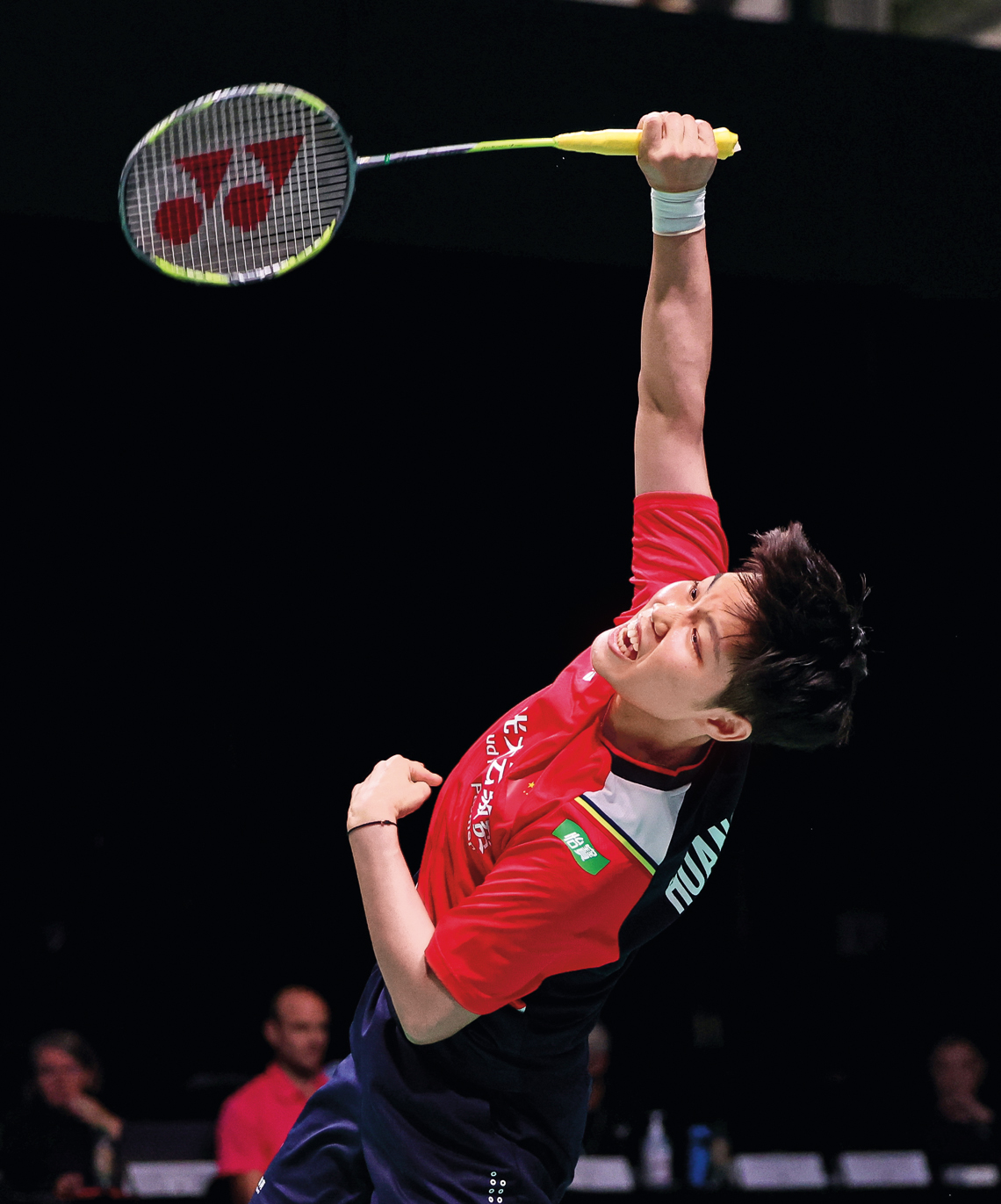During the training camp in Jinjiang, Huang Dongping began partnering with the post-2000s newcomer Feng Yanzhe, as she was preparing to lead this 1.90-meter-tall young player in several upcoming matches. With her familiar partner “Duck” no longer by her side, Huang felt an invisible weight on her shoulders. The time left for Huang and Feng to adjust to each other was just a short month. After returning from Japan and completing quarantine, Huang threw herself into intensive training at the Jinjiang base without even returning home for a proper rest.
Once on the training ground, Huang switched to her enhanced “talkative” mode. She aimed for optimal performance in both individual and cooperative training. However, some things couldn’t be rushed. Sometimes, she reminded herself not to be too anxious, as doubles required time for constant adjustment and trial and error. “In doubles, no matter what, both players must be responsible for each other on the court. Since Feng paired up with me, he had to give up his own matches, so I will definitely give my all to lead him. No matter how many matches we play together, I hope Feng can also gain something.”
“Maybe I put too much pressure on myself at that time. The two weeks of training after quarantine were so intense that I ended up crying.” By the third week, Huang’s fatigued body sent out warning signals. With a splitting headache, she measured her temperature and found she had a fever. As the departure date approached, she had to rest in bed to recover her strength.
During those few days of rest, Huang had a chance to relax and ponder, “Am I pushing myself too hard? Am I also pushing Feng too hard? Maybe we should just take it one match at a time, summarizing our experiences in real-time to address any issues.”
In their debut at the Denmark Open, Huang and Feng made an impressive entry. Their opponents, familiar with the “Huang Duck Combination,” were caught off guard, and they reached the finals, losing only to Zheng Siwei and Huang Yaqiong, who had already won their seventh title of the year. Standing on the runner-up podium beside the towering Feng Yanzhe, Huang joked that she seemed to be “squatting in a pit,” but she still thought of her former partner Wang Yilu. “Playing with young players is indeed passionate. Feng is very competitive, skilled, and enthusiastic. But pairing with a newcomer is not as smooth as with Duck.”
The following week in France, the new pair continued to advance. However, like many young players, Feng’s endurance fluctuated, and they were stopped in the quarterfinals. “As a new combination, reaching the finals in the first tournament is normal because others don’t know us well. As a senior player, I need to remind young players about many aspects. Since 2017, Duck has been leading me in matches. Now it’s my turn to lead Feng, which is quite distracting. Plus, our points mean we face tough matches from the first round, unlike with Duck, where we had some buffer rounds for adjustment.”

At the German Hylo Open, the last of the three back-to-back European tournaments, Huang felt her physical condition improving, with the previous cold symptoms gone. They reached the finals with a 2-0 score but lost 0-2 to the Indonesian pair in the final. “Indeed, the three European tournaments tested our endurance. The second one, the French Open, had the most fluctuations, with a tough first-round match. By the quarterfinals, I felt both my energy and stamina waning.” Huang thought they would perform better at the Hylo Open, but they fell short in the finals.
The night after the finals, Huang reviewed the match videos with Feng. She said, “I was worried my impatience on the court might make Feng uncomfortable. We communicated a lot that day. Feng is very hardworking, always positive, and his feedback motivates me.”
For Huang, having played 13 tournaments in the past half year, winning one championship, three runner-ups, and reaching the semifinals five times, her record might have seemed to need more room for improvement before the Tokyo Olympics. However, after experiencing the peak at the Olympics, maintaining motivation at this level became an invisible barrier for Huang.
Now, the young Feng, though still inexperienced, brings a very different feeling to Huang. Competing in these few tournaments, she felt a sense of “returning to basics.” She saw the youthful vitality in Feng, rekindling her own enthusiasm.
“I think Feng is really good. When I’m particularly anxious, he can stay calm. Even if I’m occasionally impatient on the court, he can handle it. People might think I’m the experienced one leading Feng in matches, but Feng gives me very different feelings. Young players’ persistence for every point makes me want to face and conquer challenges again. Maybe the lack of a calm mindset from young players was what I was missing in the past half year.” Looking back, Huang says Feng has performed very well as a young player.
For Huang, doubles always involves both players being responsible for each other. There might be confusion during low points, but the beliefs that supported her have never wavered. In Jinjiang, Huang would go early every Sunday to have breakfast with her grandmother. Her grandmother would tell her that she couldn’t watch her matches because it was too nerve-wracking. “If you’re unhappy playing, come home; Grandma will take care of you.” Huang knew her family was worried about her hard work, but she also knew she had many goals in badminton yet to unlock. So, as she moves toward her next goal, she embraces the challenges and looks forward to a bright future.

Leave a Reply